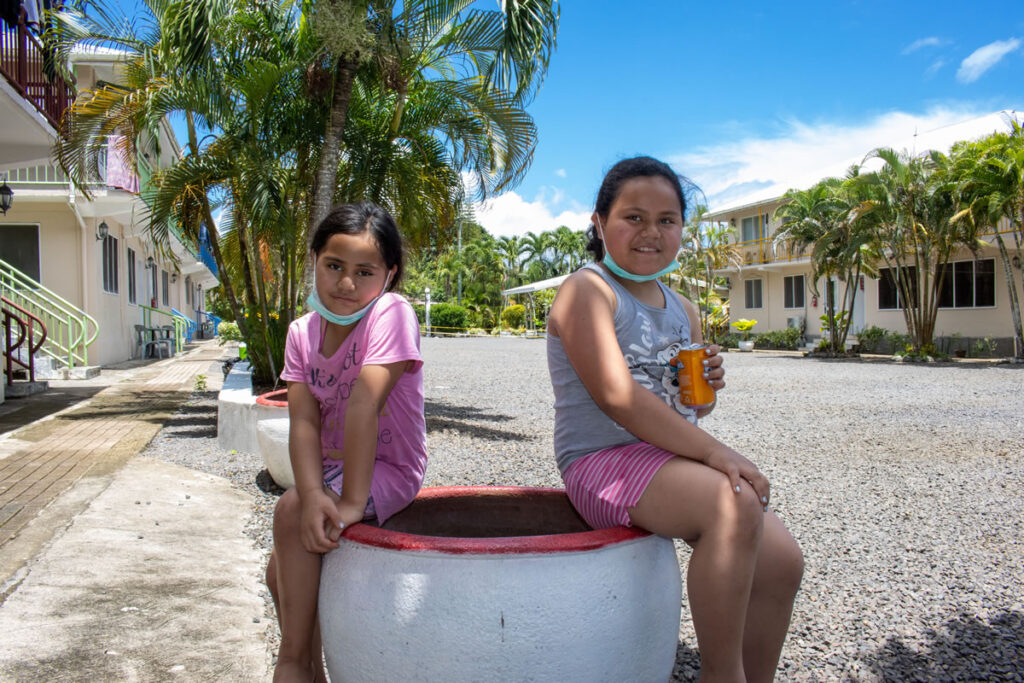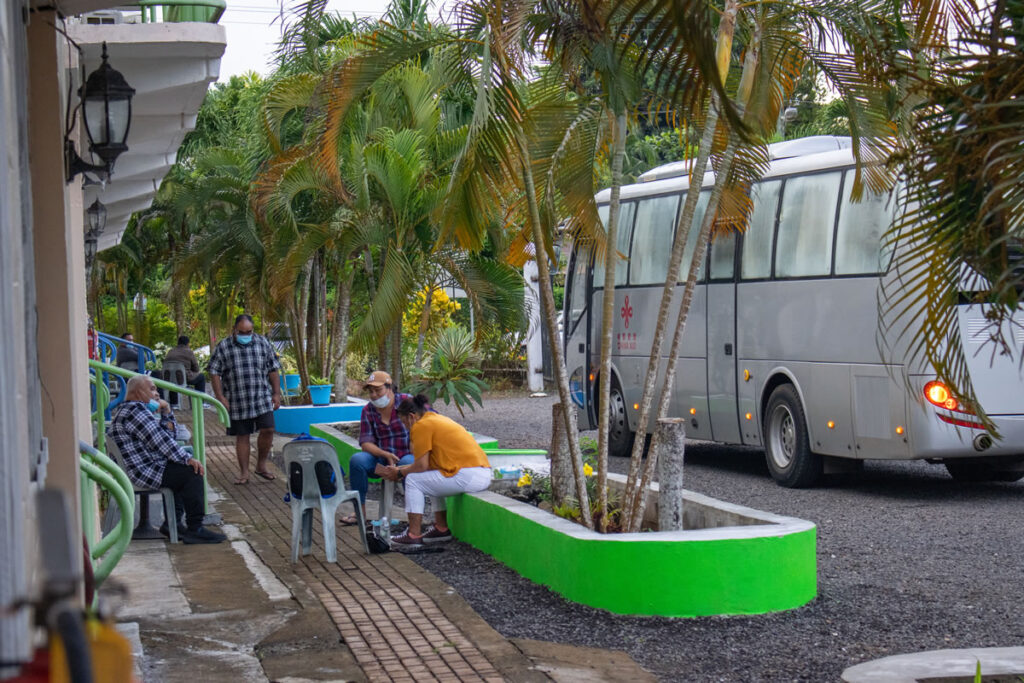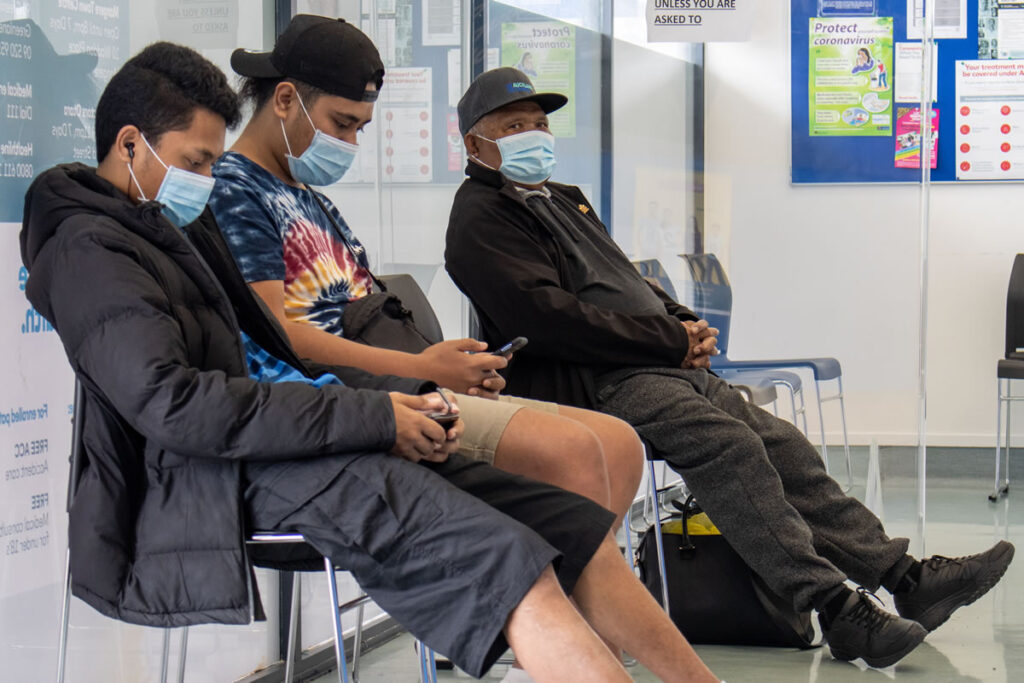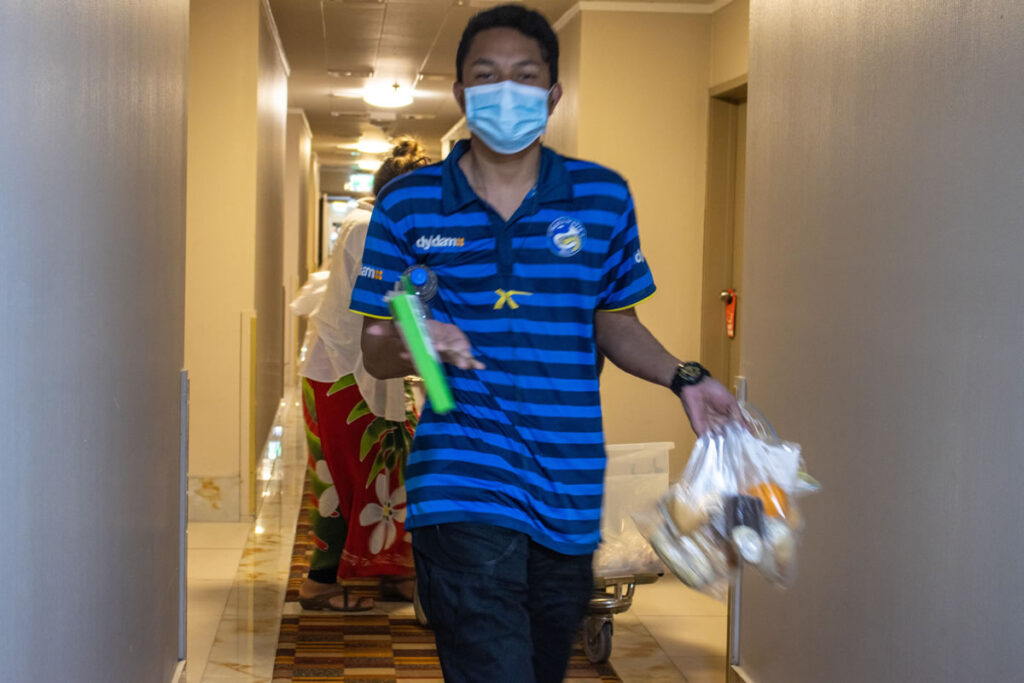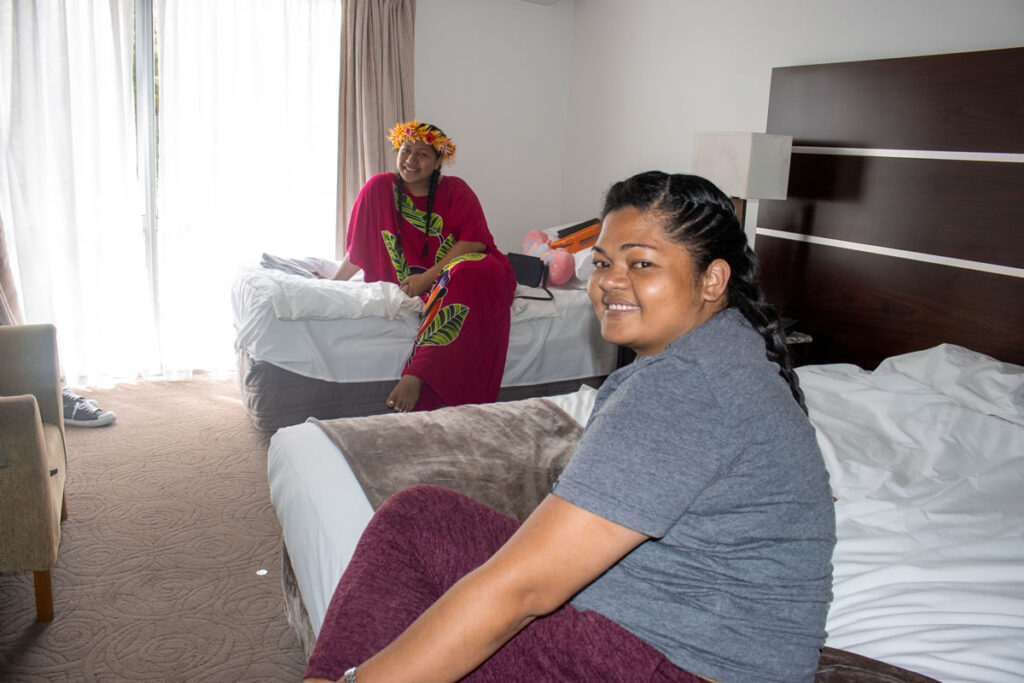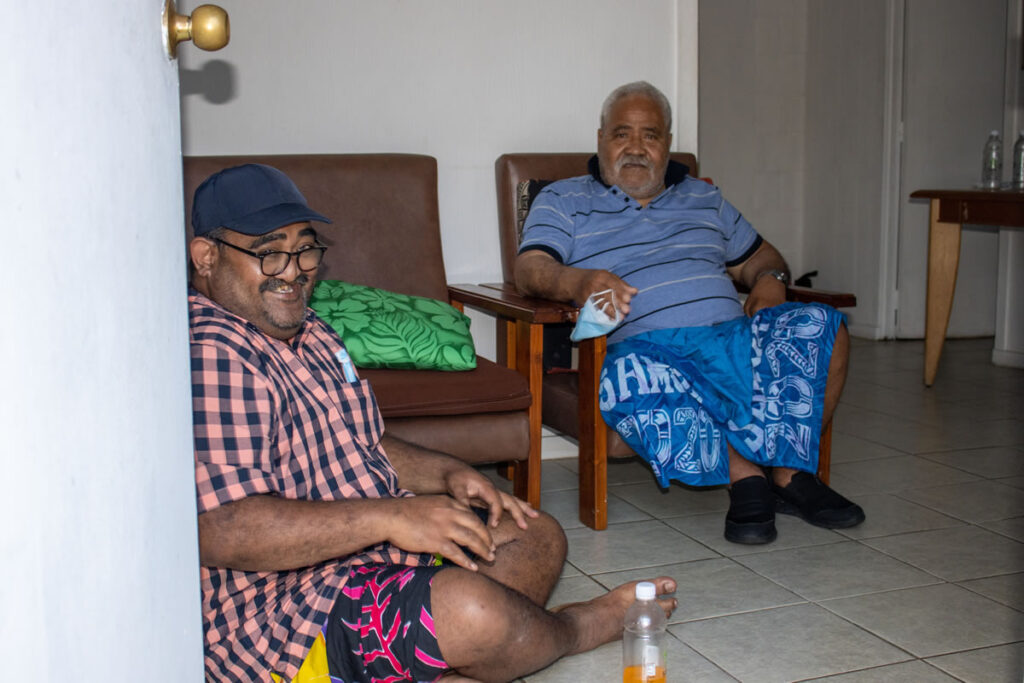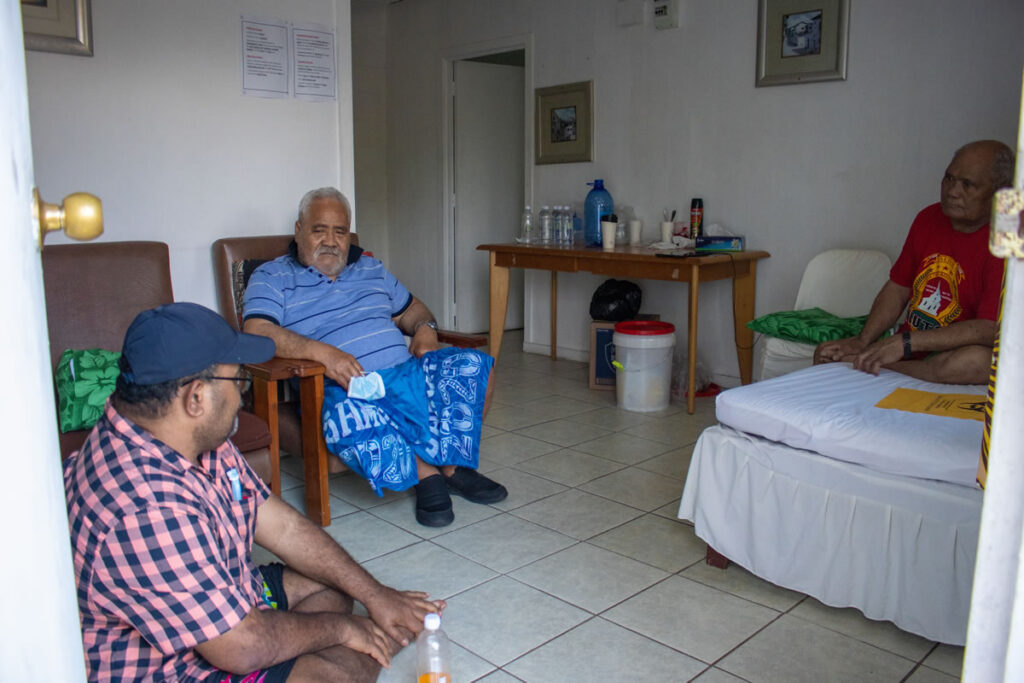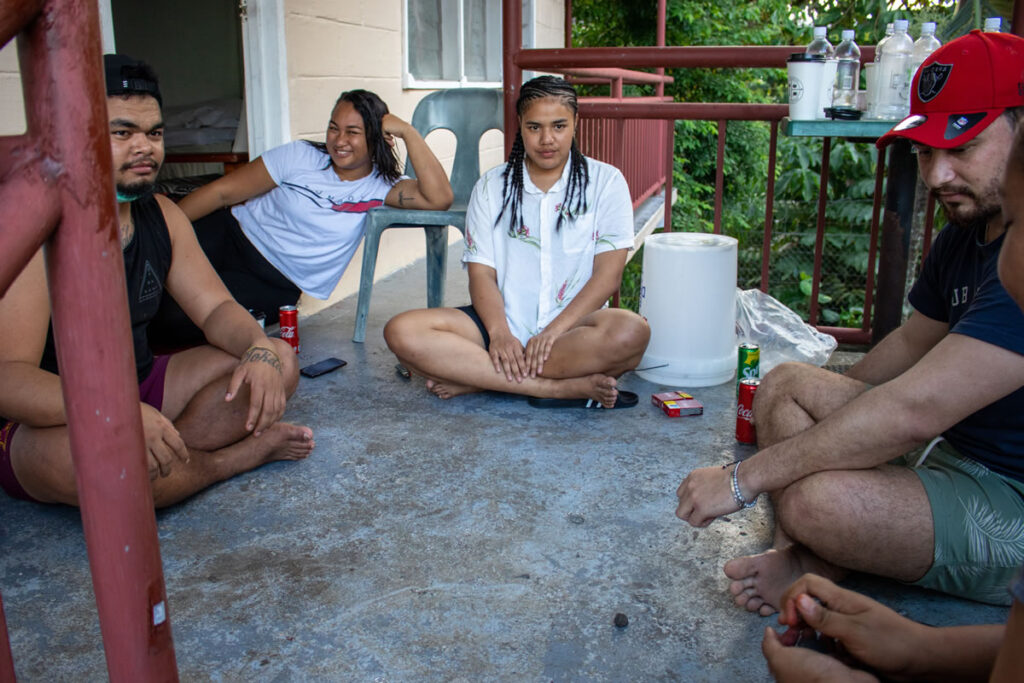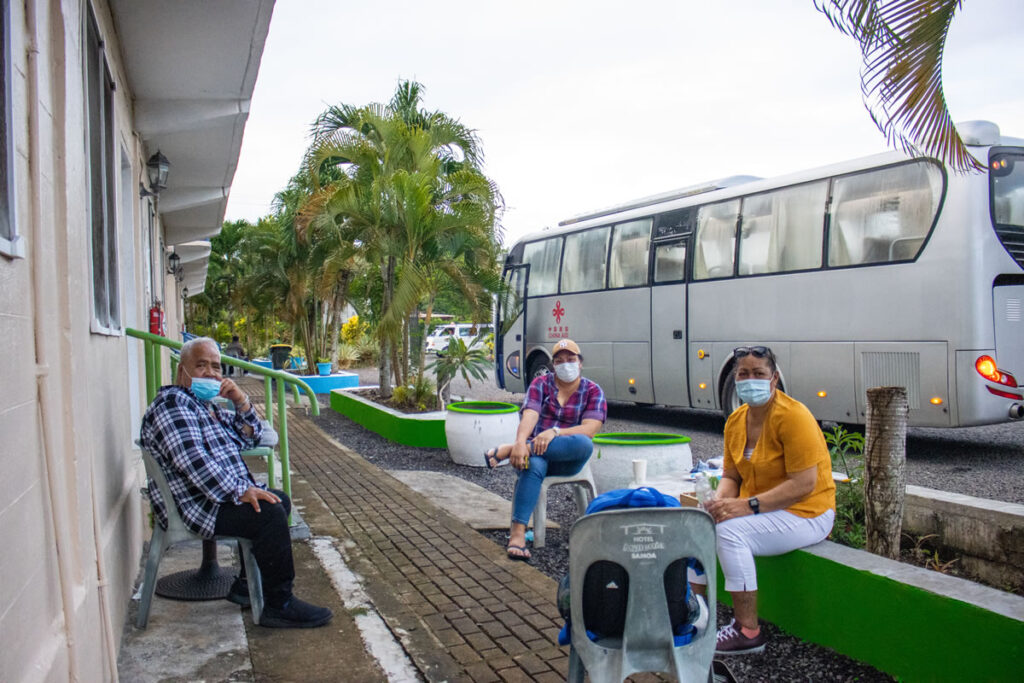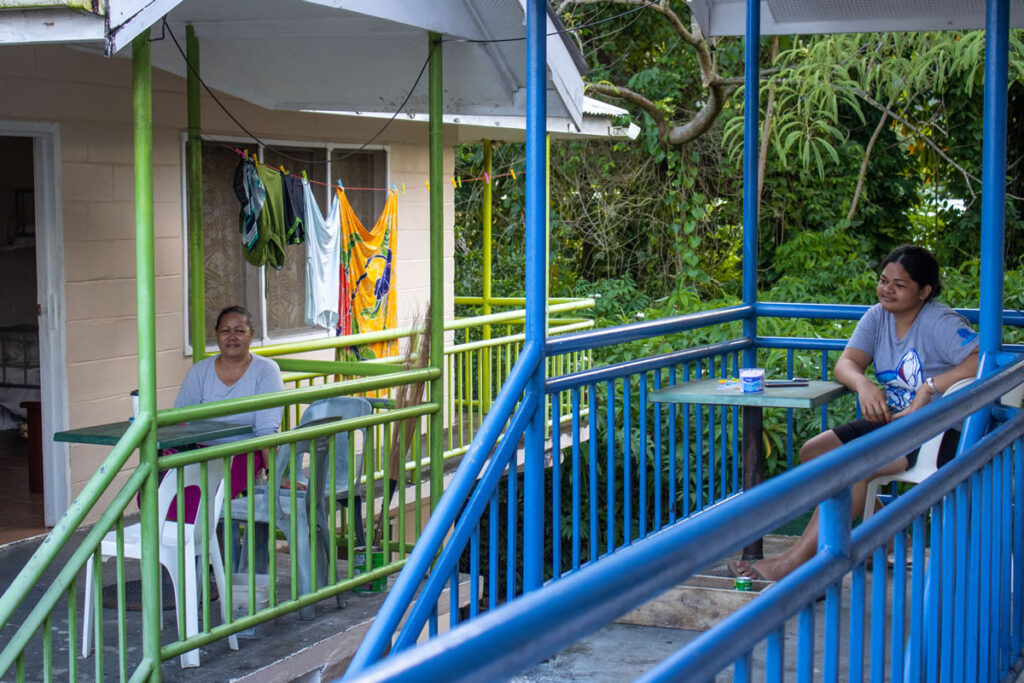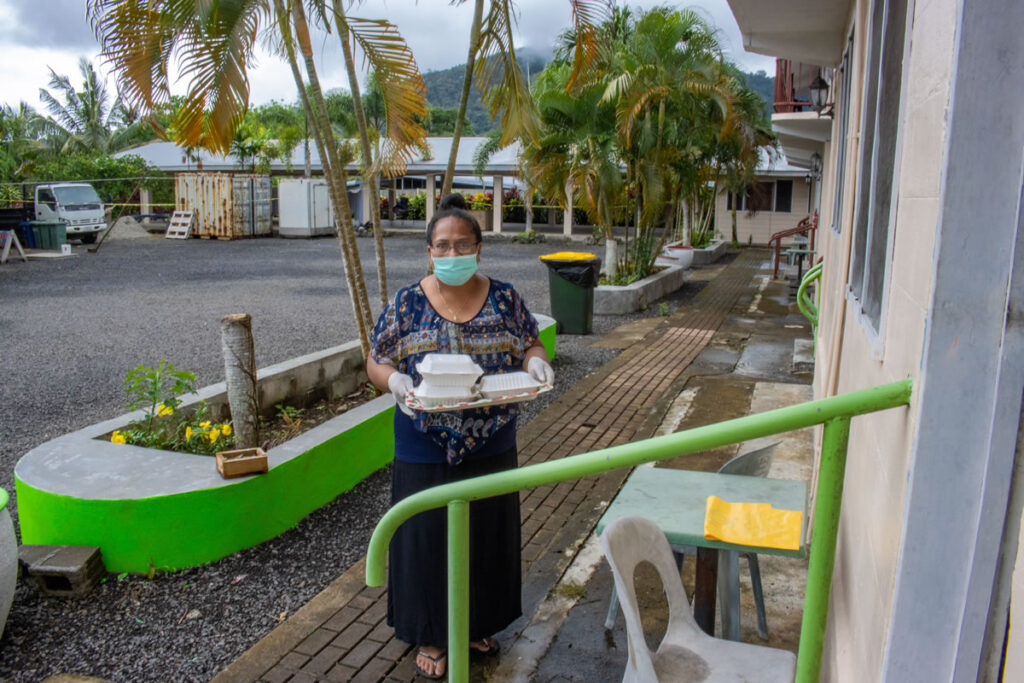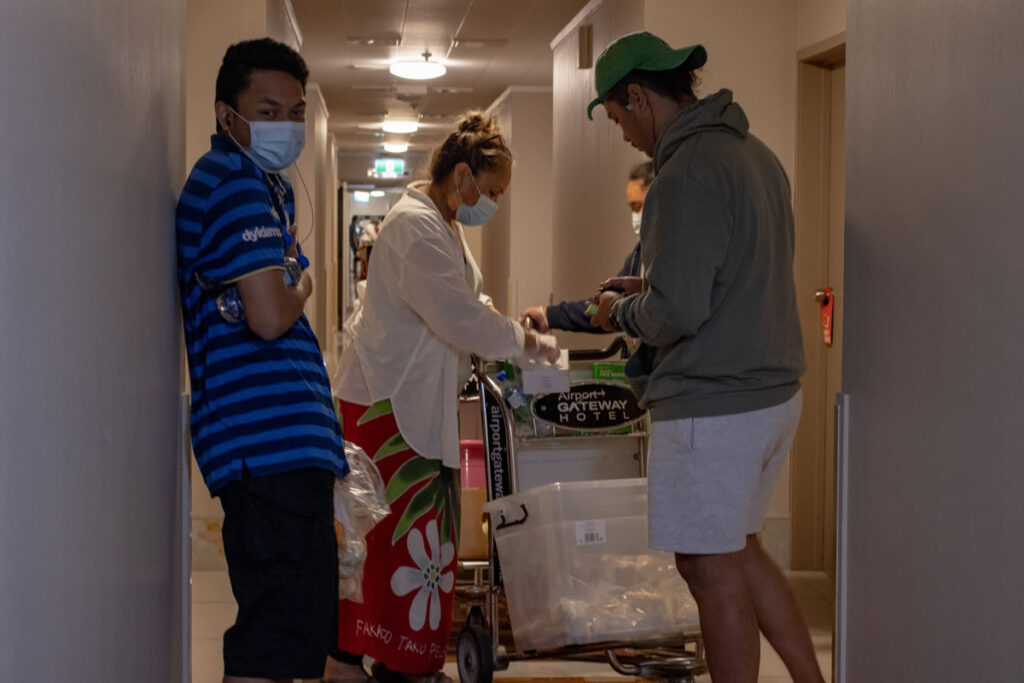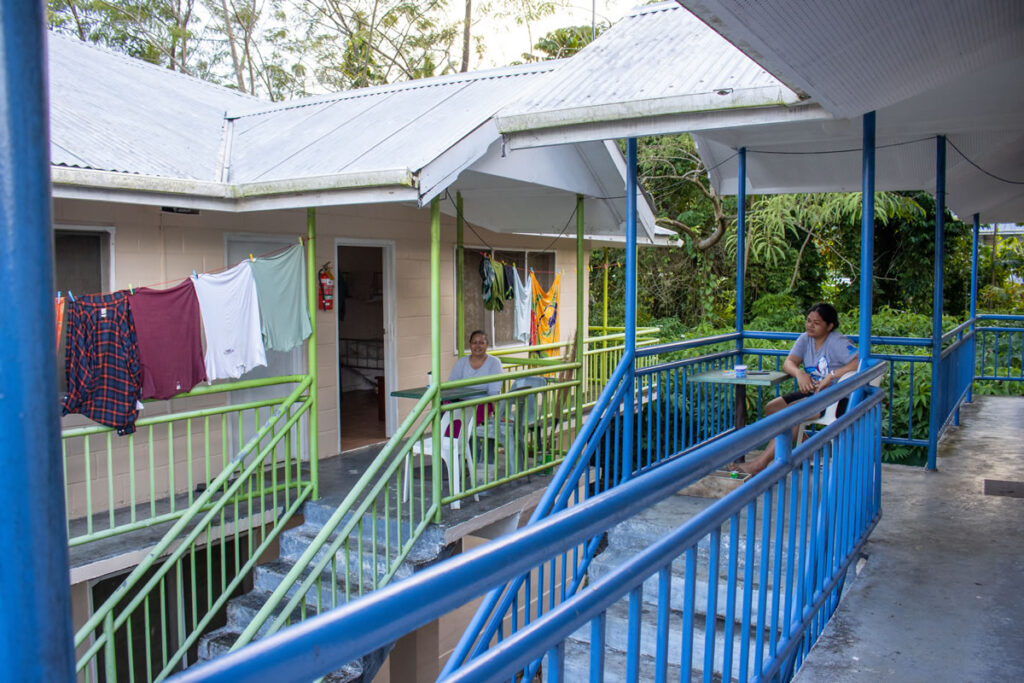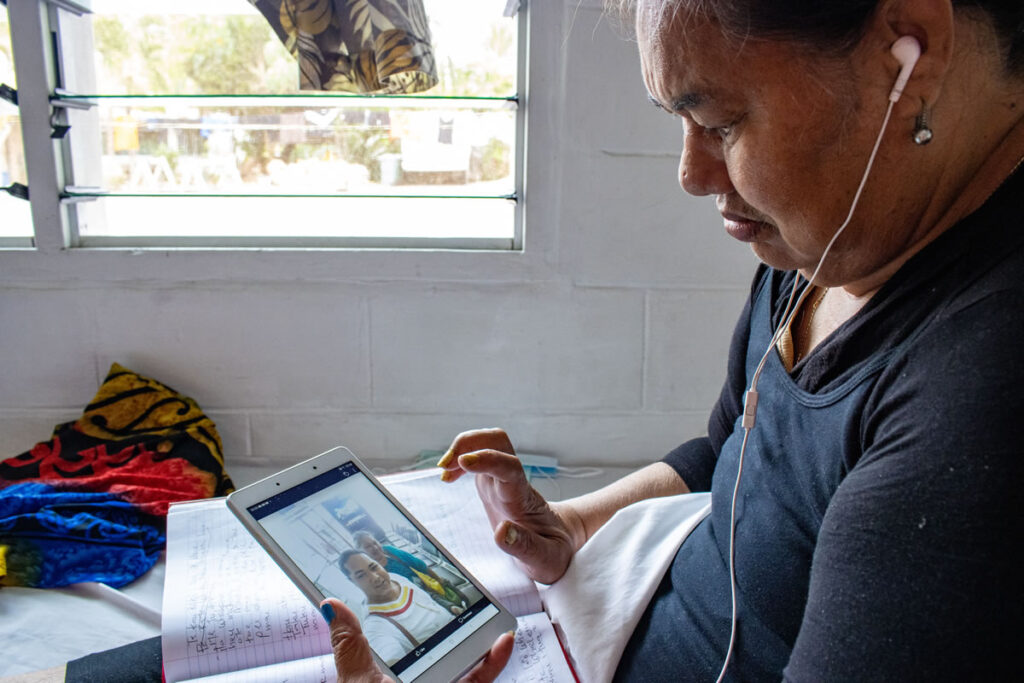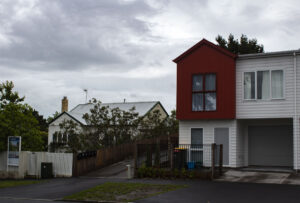The long journey home
For Tokelauans in New Zealand, it has been a long wait to get home because of Covid-19 restrictions
At the beginning of February this year (it seems a long time ago now) the world watched in alarm as coronavirus cases grew to new highs and swept around the globe.
Singapore was the first country to ban flights from Wuhan in China on January 23, 2020, quickly followed the next day by the Marshall Islands closing their borders – thus began the domino effect of countries closing and putting restrictions on their borders.
News and videos emerged from China showing overcrowded hospitals and distressed front-line doctors; nothing generates fear and panic like a highly contagious and deadly disease that no one knows anything about.
The urgency to respond to the predicament weighed heavily on governments and countries around the world as they hastily enforced travel restrictions at their borders in an attempt to protect their people.
Remote and isolated, the Tokelau Atolls, cradled in the vast Pacific Ocean, sit in safety.
The atolls, which have been a New Zealand territory since 1949, are one of the most remote places in the world, only accessible by a 24-hour boat trip from Samoa.
The Tokelau and Samoa relationship is unique and preserved with mutual trust and respect as Tokelauans routinely transit through Samoa to go abroad or to return home – it is the standard procedure.
When Samoa closed their borders to non-Samoan citizens in March, it meant Tokelauans could not enter Samoa to transit home. Tokelauans were stranded around the globe.
Now, eight months on, the Samoan government has decided to take Tokelau under its wing and include them on repatriation flights which started in November.
Here are the stories of three women and the long-anticipated return home.
CHAPTER 1: Lakena’s Story
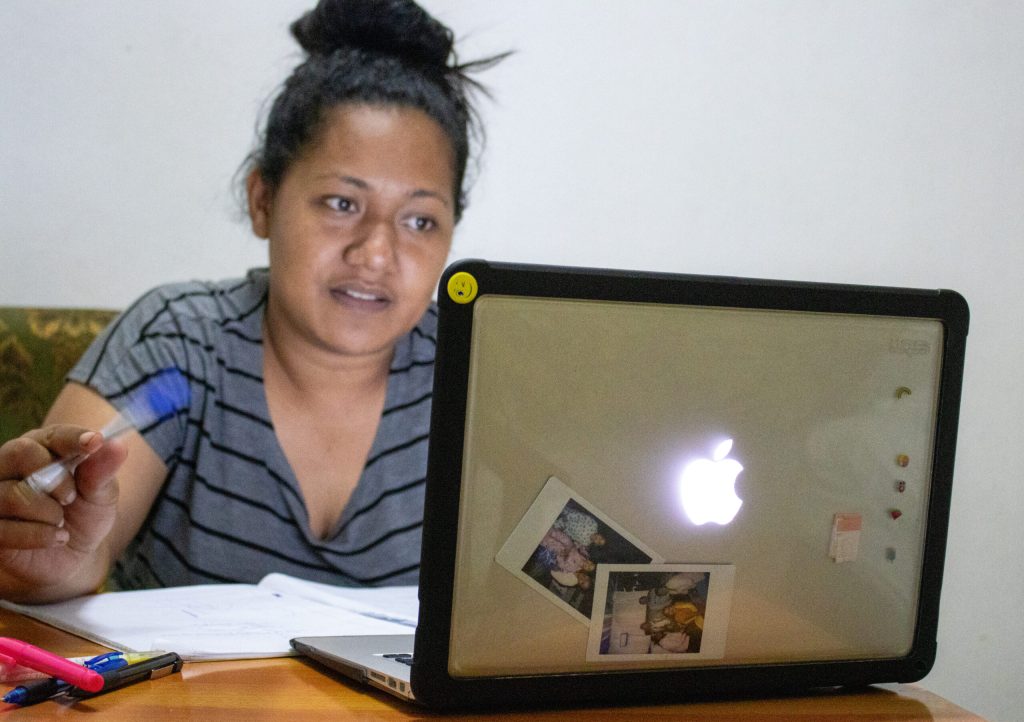
Sitting cross-legged behind her study table in the quarantine facility in Apia, Samoa, where she is isolating with 33 other Tokelauans, Lakena Gasologa, 26, recalls the long road home.
In January of 2020, Lakena along with other scholarship students sailed a day and night from their remote location to Samoa where they would transit on to their destination country to continue their education.
News of an unknown disease surfaced in the days before their flight was set to take off but, with the disease still in its infancy, Lakena did not see reason to be concerned.
It was not until her last day in Samoa that Lakena would get her first-hand experience of the concerns and fears caused by coronavirus.
“Me and my sister Peta met with our older sister Hela at the Tokelau office on our last day before our flight to Fiji, and she told us she was not going anymore because of the virus.”
By the day of the flight, a number of Tokelauan students had deferred their studies to 2021 and booked the next sailing home.
“My parents reached out to me and my sister Peta when they heard of the students returning home, they were concerned but I told them that we were continuing on to school and to wish us well.”
Once in Fiji, Lakena fell into the typical routine of the student life – classes, studying, and living independently.
It hit me hard, like this is serious.
But this year would prove to be different from previous study years as news of coronavirus took over – casting worries and fears in its wake.
After only a month and some weeks in Fiji, an urgent email from the Tokelau Education Director notified Lakena and other Tokelau students that they were to return home, effective immediately.
“It was scary because its different hearing people talk about it (coronavirus) and it’s different when the government gets involved – it hit me hard, like this is serious.”
The events that followed their recall return home were almost that of organized chaos; packing and frantically sorting out course requirements for the rest of the semester.
For science students who had to submit lab practical experiments, they squeezed a semester’s worth of lab experiments into the week before their flight.
Back in her quarantine room, Lakena laughs sardonically during her recollection.
“It was hard,” she said. “I dropped my geography science, so I didn’t have labs to submit – but those science students, they had it worse…”
The Tokelau scholarship students and their families were booked for two flights – with Lakena marked down for the first flight.
But just a day before that flight, Lakena came down with the flu and Samoa’s border requirements shut here out.
With no option but to await the next flight, Lakena reluctantly parted with her sister Peta; soothed only by the thought that they would see each other in a matter of days.
“I think that was the first time I felt unsettled,” Lakena recalled about the situation.
As the remaining Tokelauan student prepared for the second flight, Lakena remembers other Pacific Island students envying them for being called home due to the global crisis.
Lakena says Tokelauans returning home caused a domino effect, and that “not long after we moved, other islands began making moves to return home”.
The day of the flight for the remaining Tokelau students arrived, and in an unfortunate twist of fate, it was the same day that the results of a Fijian flight attendant’s coronavirus test came back positive.
The flight attendant’s flight flew in from San Francisco the day before the Tokelauan flight to Apia, Samoa.
Samoa’s response to the news of Fiji’s first coronavirus case was immediate, all but Samoan citizens were banned entry into Samoa.
“I was the first to arrive at the airport,” Lakena recalls.
“I remember thinking ‘why aren’t the others here yet’”
“I remember thinking ‘why aren’t the others here yet’ and just as I stepped out of the car to get my bags, my phone buzzed with the message that our flight was cancelled.”
Struggling to control her emotions in her recollection of the events, Lakena admits she lost hope in that moment.
“I met up with the other students at Sei and Hakoti’s (other Tokelauns) place, and it was sad – we were like these abandoned kids left somewhere,” Lakena said. “But I’m glad we had each other.”
With the news of Samoa’s new border restrictions, the Government of Tokelau and Tokelau Administrator Office in New Zealand scrambled to get them on a plane from Fiji to Auckland.
Three days after their flight to Samoa was cancelled, Lakena and the Tokelauan students boarded a flight bound for Auckland.
They arrived just two days before NZ went into Level 4 lockdown and were taken to a quarantine facility where they remained during the lockdown period.
“We were well taken care of at that facility, but I felt like I was going a little mental,” Lakena says.
With autumn approaching and a pandemic on the rise, Lakena says she struggled to adapt to the new environment and balance school with everything else that was going on.
“Withdrawing my papers were not an option, and we (students) were notified that if we dropped our papers, we would risk being terminated,” Lakena says, “It was the hardest experience I ever went through in my schooling life.”
Although the other Tokelau students were in the same facility, Lakena says that she felt lonely at times and fell into what she can only describe as depression.
Lakena and the Tokelau students parted ways after Level 3 when they were taken in by families.
It was in this period of time staying with family that Lakena says she found comfort and ways to cope with all the uncertainty and pressures.
“I stayed with my cousin from my dad’s family and she is married with kids, she is so religious, and it sort of rubbed off on me,” Lakena says. “Being with her and her family made me feel closer to home.”
Lakena kept in regular contact with her family in Tokelau and says that even at the age of 26, her parents still coddle her.
“My mum would tell me “Kena don’t go anywhere ok”, they would tell me to stay put in Auckland when I told them I wanted to go to Wellington.”
And no matter how many times they called and kept in touch, Lakena says that as soon as the call ended, she would feel the distance between her and her family weigh her down again.
Months passed and though she never fell into the same student routine she had in Fiji, Lakena learned to persevere with all that came her way.
As the end of the 2020 approached, Lakena says that the her hopes of returning home before the end of the year never wavered.
At one point, Lakena recalls the Education Office reaching out for her passport details, and though she was curious, she would n ot let herself get excited for fear of being let down again.
But when November came around, an email titled “urgent” brought the long-awaited news she had been praying for.
Lakena cheerfully compares her feelings to a firework ascending the sky before exploding into a colourful spectrum of lights.
“I was celebrating,” she says.
She says this has been one of her most trying years and she was over the moon to finally be on the way home.
“This has become an ongoing joke for students back at USP,” Lakena laughs. “Tokelau was the first to make moves to return home and now eight months on and Tokelauans are still trying to get home.”
In her quarantine room, Lakena wipes her tears while giving credit to family support and prayers for her ability to overcome the struggles of this long journey.
And as for the remaining leg of the trip, she says she does not care about the lengthy quarantine period, she would take any measures needed to guarantee safety to Tokelau.
CHAPTER 2: Hegalo’s Story
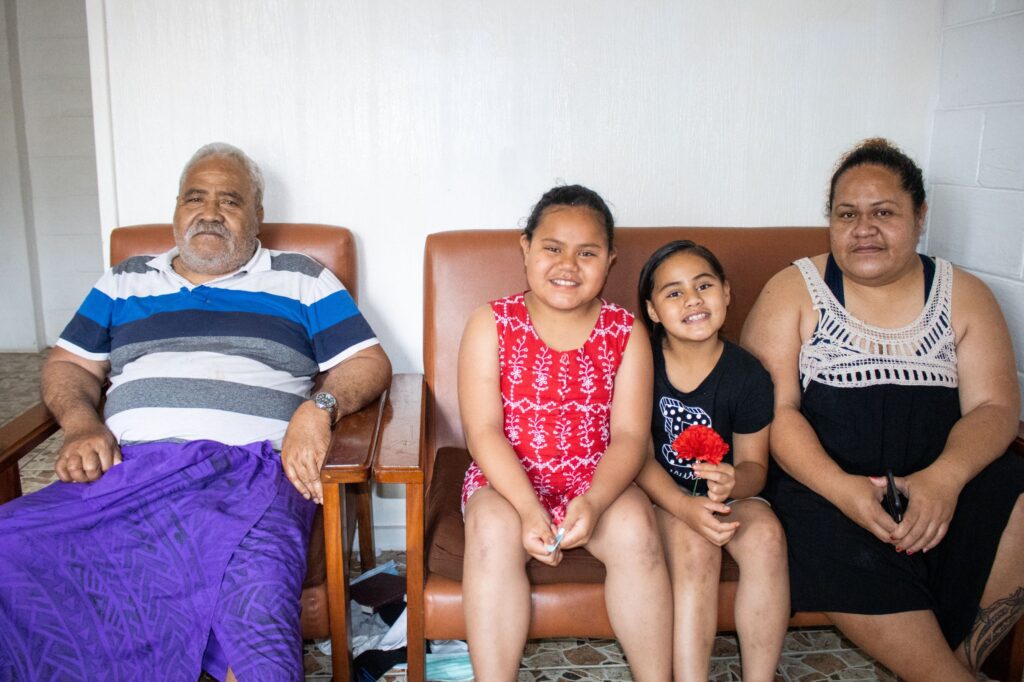
In the room directly below Lakena’s second-floor room in the quarantine facility in Apia is Hegalo Vitale, 34.
Hegalo shares the room with her elderly father Polua Vitale, 63, and two daughters aged seven and nine.
Hegalo left Tokelau in March 2019 and set sail to Samoa for health-related reasons.
At the time of her travel to Samoa, her father and two daughters were in Australia spending time with family.
“They cut their holiday short and flew in from Australia to accompany me because I was unwell and alone in Samoa,” Hegalo recalls.
Three months after arriving in Apia, Samoa, Hegalo and her family flew to New Zealand on the health referral scheme for further medical care.
They lived in Wellington with family and thus began the long process of health check-ups, a surgery, and the road to recovery.
It was not until March of 2020 that Hegalo and her family were given the green light to return home to Tokelau.
But news of New Zealand’s first confirmed case of Covid-19 brought Hegalo’s plans of returning home to a standstill.
“I had mixed emotions – I was sad at not being able to return home but at the same time I felt relief that we were in NZ of all places because they have reliable health facilities,” Hegalo says.
I had mixed emotions
From his bed on the opposite side of the room, Polua Vitale, 63, praised New Zealand’s response to the global pandemic.
“I was thankful that I was in NZ during that time because it wasn’t like the other countries out there struggling with the virus,” Polua says of New Zealand’s response.
Polua says it was remarkable to see government decisions made in unison (one voice) and the people taking heed to the decisions.
During the year, Hegalo and her family patiently awaited news from Tokelau’s Health office about a repatriation flight home.
“I first heard about the flight from people back home, it wasn’t official at the time,” Hegalo recalls. “But someone from the health office later got in contact and told us to prepare because it might be soon.”
Hegalo says she longed to return her family home, especially her dad who she worried was not adapting well to the NZ life as he seemed to get older and frail.
“Tokelau life is different from the New Zealand life, you live freely in Tokelau,” says Hegalo. “I had my dad in mind (too), he grew up in Tokelau and belongs on Tokelau.”
You live freely in Tokelau
And as much as she would have liked to give her kids a better future in New Zealand, Hegalo says Tokelau’s safe environment was what shaped her decision to return home.
In her quarantine room in Apia, Hegalo recalls the unsettling moment on a Sunday afternoon when she found out about the Tokelau repatriation flight.
After some phone calls enquiring about the flights and finding out her family of four were not on the passenger list, Hegalo implored those in charge to consider her and her family.
“Lucky for us, there was a family originally on the list who could not travel anymore and so that was how we got our spaces on the flight,” Hegalo says.
The very next day after their seats on the flight were confirmed, Hegalo and her family hopped on a plane from Wellington to Auckland.
Once in Auckland, what followed were a sequence of events putting together medical requirements to enter Samoa.
Despite feeling elated to finally be on the journey home, Hegalo’s father, Polua says his concerns about the virus will not end even after they arrive at their remote destination of Atafu, Tokelau
“We left NZ at a time that the vaccine was rumoured to soon be released, and I think about how hard it would be for Tokelau to get the vaccine,” says Polua.
He added that until everyone is vaccinated, “the risk of coronavirus reaching our shores will remain a constant worry”.
Hegalo says she was content with the preparations prior and during the journey home.
It all came down to the individuals and the measures they took to ensure they would not bring risk to the rest of the group.
“Who am I to complain?” Hegalo questions. “I don’t know if it’s my faith that has grown or just my excitement to be going home, but I’m happy.”
Hegalo is not naïve to her peoples’ worries about the repatriating Tokelauans and the risk they pose, having come from a Covid-19 country.
“I know the planning and preparing for this trip was not easy for everyone involved, it would be a sad (tragedy) if we unknowingly took this virus back home with us,” Hegalo confessed. “All we can do is keep praying God sees us through this journey and that Covid-19 never reaches our shores.”
In hindsight, despite the stressful confusions and last-minute confirmed seats, Hegalo and her family are grateful to be one step closer to home.
“We put our faith and trust in the healthcare measures and inspections – the tests and procedures of this trip,” Hegalo explained. “It is all we can do in this journey home – is to trust the process and find strength in God.”
Chapter 3: Tevao’s story
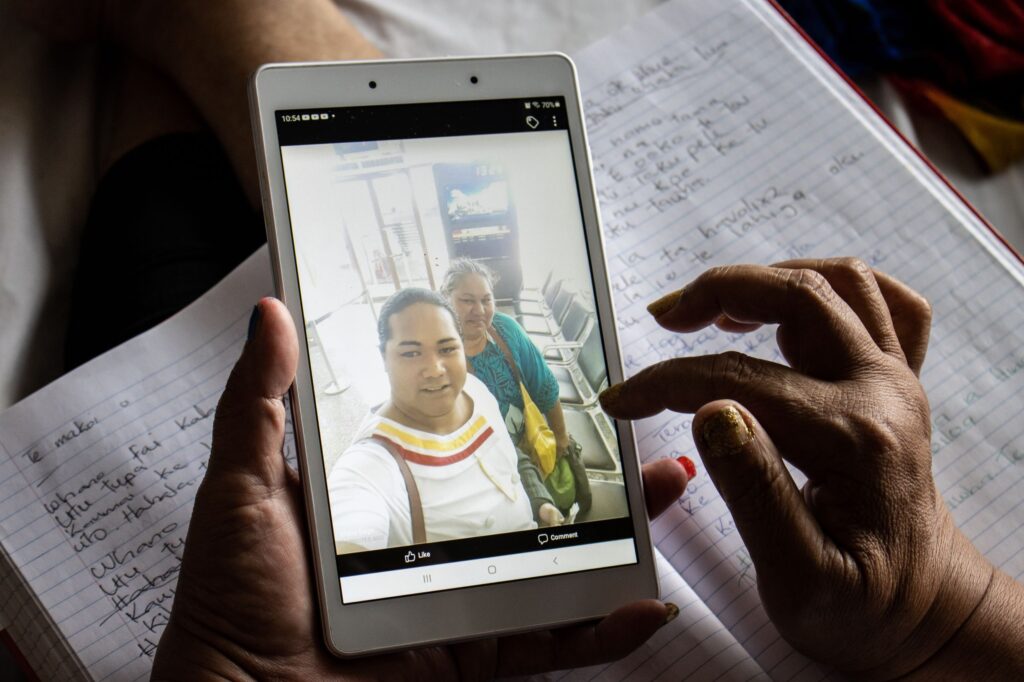
Two doors from Hegalo and her family is Room 6, and on a single bed next to a window sits 53-year-old widow, Onolina Tevao Pasilio.
Tevao travelled from Tokelau to Samoa in June of 2018 with her son Tavite Pasilio, 29 at the time, en route to Wellington, both under the health referral scheme.
“I came for my knee and my child came for his heart,”Tevao recalls. “Ever since my husband passed away in 2013, it’s always been me and Tavite together.”
It’s always been me and Tavite together
The mother-son duo departed from Faleolo Airport in July and several hours later settled in with family in Wellington, New Zealand and arranged doctor appointments.
But three months after arriving in New Zealand, on an October night, Tevao’s life took a sorrowful turn with Tavite’s sudden passing.
Due to her health check-ups at the time making it hard to return home to bury Tavite, and with the blessing of her eldest son living in Tokelau, Tevao and families laid Tavite to rest in Wellington on November 2, 2018.
“We went for treatments to restore our poor health and I lost more than I came with,” Tevao reflects on the events with a sad smile.
After her knee surgery in March 2019, Tevao stayed on in New Zealand for other health related check-ups and was booked to return home in March 2020.
Having heard about a mysterious disease on TV in January, Tevao says she had worries about the virus but that “it wasn’t that serious” in her mind.
It was not until she heard of countries putting up border restrictions and closures that she realized the magnitude of the disease.
“My ticket got postponed because of this (border restrictions) and I was so sad,” Tevao says. “It was the second time it got postponed and I had been looking forward (to returning home).”
Tevao reveals that she finds her peace in prayer and it has been the one constant thing that has kept her balanced in times of hardship.
With New Zealand going into Level 4 lockdown shortly after her flight got postponed, Tevao says she was lucky to be living with her cousin and two sons in Wellington.
With NZ’s level 4 lockdown rules being especially strict, Tevao says that her daily routine was not affected as she would take walks around her cousin’s house and stay home just like any other day.
“I don’t know if I’m remembering the dates correctly, but I remember a time when we would get food delivered to the house but that’s it.”
The lockdown levels dropped from level 4 to level 1 over a period of nearly three months, and so five days after New Zealand went down to Level 1, Tevao farewelled her Wellington families and moved to Palmerston North.
After spending two months in Palmerston North with family, Tevao hit the road once again and this time moved in with another niece in Hamilton who would accompany her home after a long wait in New Zealand.
“Once I got to Hamilton, it was all about the waiting and praying for news about a way to return because I wasn’t worried about who I would be travelling with anymore.”
Tevao found out in early November that she would be returning home on a Samoan repatriation flight.
“I was so happy when I heard the news (of the flight),” Tevao confessed. “I like New Zealand, but Tokelau is home and I have been homesick ever since my child passed on.”
I was so happy when I heard the news of the flight
Back in her room, her eyes fill with emotion as she stares out the window at the quarantine compounds; it takes a few seconds before she continues.
“The last time I was here (in Samoa), I was with Vite,” she says through tears. “I thought of him when the plane landed, and I keep him in my prayers before I sleep…”
Despite the grief she has endured in the past two years, Tevao remains hopeful and says she has much to look forward to upon returning home.
“I’m looking forward to seeing my eldest boy, Kalolo who is in Nukunonu,” Tevao says. “I also can’t wait to go see my husband where he lies and just seeing families I haven’t seen since I left.”
Sitting from her bed in quarantine in Apia, Tevao says she would not have been able to get through the tough times if it were not for her loved ones who have supported her along the way.
- The 34 Tokelau passengers are currently completing their 21-day quarantine in Apia, Samoa and awaiting an updated boat schedule to inform them of their sailing to Tokelau. Once in Tokelau, all passengers will be taken to quarantine for another 14 days before being released to go home.


